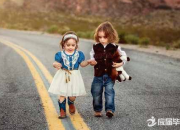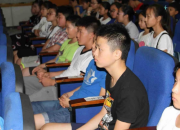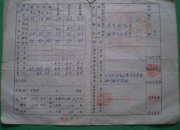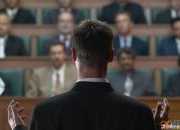英语课前的两分钟演讲稿
时间:2021-08-31英语课前的`两分钟演讲稿1
Today, we live in a world of prosperity but still threatened by so many new problems. On the one hand, tourism, as one of the most promising industries in the 21st century, provides people with the great opportunity to see everything there is to see and to go any place there is to go. It has become a lifestyle for some people, and has turned out to be the driving force in GDP growth. It has the magic to turn a backward town into a wonderland of prosperity. But on the other hand, many problems can occur - natural scenes aren't natural anymore. Deforestation to heat lodges are devastating Nepal. Oil spills from tourist boats are polluting Antarctica. Tribal people are forsaking their native music and dress to listen to U2 on Walkman and wear Nike and Reeboks.

All these appalling facts have brought us to the realization that we can no longer stand by and do nothing, because the very thought of it has been eroding our resources. Encouragingly, the explosive growth of global travel has put tourism again in the spotlight, which is why the United Nations has made 20xx the year of ecotourism, for the first time to bring to the world's attention the benefits of tourism, but also its capacity to destroy our ecoenvironment.
英语课前的两分钟演讲稿2
Good morning ladies and gentlemen:
The title of my speech today is “The Doors that Are Open to Us ”.
The other day my aunt paid me a visit. She was overjoyed. “I got the highest mark in the mid-term examination!” she said. Don't be surprised! My aunt is indeed a student; to be exact, a college student at the age of 45.
Last year, she put aside her private business and signed up for a one-year, full-time management course in a college. “This was the wisest decision I have ever made,” she said proudly like a teenage girl. To her, college is always a right place to pick up new ideas, and new ideas always make her feel young.
“Compared with the late 70s,” she says, “now college students have many doors.” My aunt cannot help but recall her first college experience in 1978 when college doors began to be re-opened after the Cultural Revolution. She was assigned to study engineering despite her desire to study Chinese literature, and a few years later, the government sent her to work in a TV factory.
I was shocked when she first told me how she (had) had no choice in her major and job. Look at us today! So many doors are open to us! I believe there have never been such abundant opportunities for self-development as we have today. And my aunt told me that we should reach our goals by grasping all these opportunities.
英语课前的两分钟演讲稿3
Now every year, many local ecoenvironmental protection organizations are receiving donations - big notes, small notes or even coins - from housewives, plumbers, ambulance drivers, salesmen, teachers, children and invalids. Some of them cannot afford to send the money but they do. These are the ones who drive the cabs, who nurse in hospitals, who are suffering from ecological damage in their neighborhood. Why? Because they care. Because they still want their Mother Nature back. Because they know it still belongs to them.
This kind of feeling that I have, ladies and gentlemen, is when it feels like it, smells like it, and looks like it , it's all coming from a scene to be remembered, a scene to recall and to cherish.
The other night, as I saw the moon linger over the land and before it was sent into the invisible, my mind was filled with songs. I found myself humming softly, not to the music, but to something else, someplace else, a place remembered, a place untouched, a field of grass where no one seemed to have been except the deer.
And no matter who we are, what we do and where we go, in our minds, there's always a scene to remember, a scene worth our effort to protect it and fight for it.
Thank you very much.
【英语课前的两分钟演讲稿】相关文章:
1.英语两分钟演讲稿
2.英语课前演讲稿
4.英语课堂演讲稿
6.两分钟英语演讲稿
9.英语演讲稿两分钟











